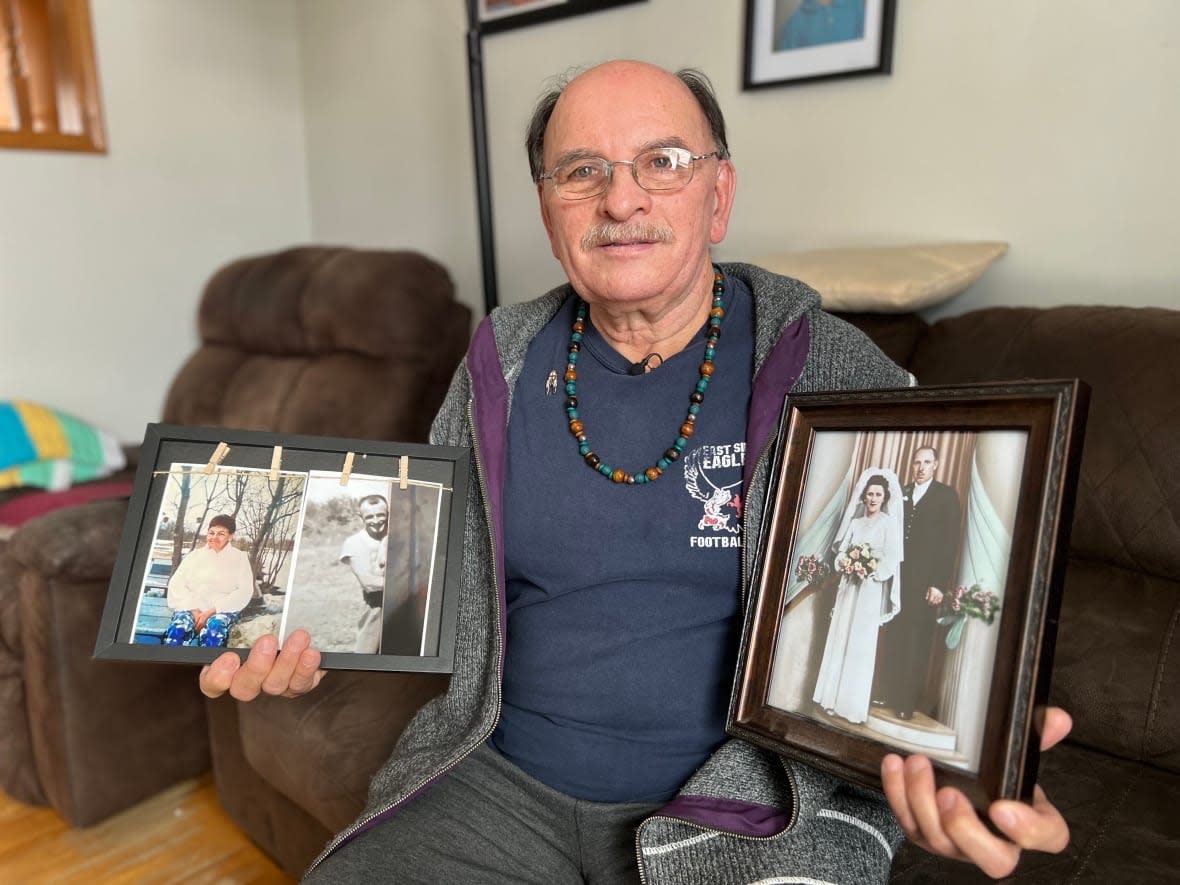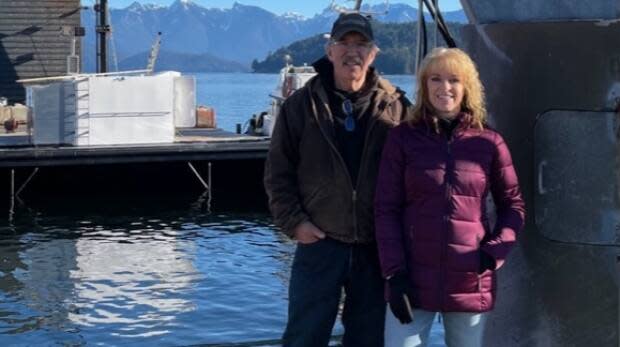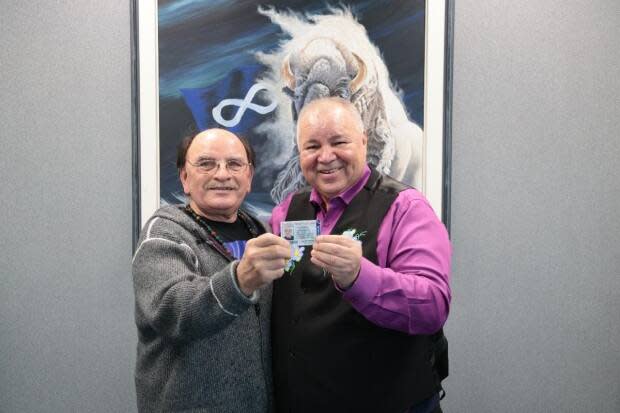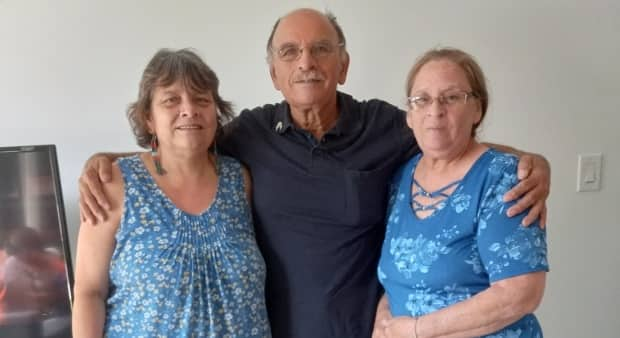Men switched at birth to get formal apology from Manitoba government

Edward Ambrose struggles to describe what it was like to meet "someone who is me" for the first time.
Ambrose and Richard Beauvais, who were switched at birth at a hospital in Manitoba in 1955, first met face-to-face Tuesday ahead of a formal apology the provincial government will make to them on Thursday.
"I grew up with the features of my father, which is his father," Ambrose said on Wednesday afternoon, and Beauvais resembles the mother who raised Ambrose. "It's there, you can see."
Premier Wab Kinew will deliver the apology to the two men in the Manitoba Legislature on Thursday, Northern Affairs Minister Ian Bushie said Wednesday.
The two were born at the same hospital in Arborg, Man., in 1955, and were taken home by each other's biological parents.
Ambrose was raised believing he was Ukrainian, while Beauvais was raised Métis, went to a day school for Indigenous children and was taken from the family during the Sixties Scoop, when Indigenous children were removed from their homes and put in foster homes or adopted out of their communities.
Beauvais and his siblings "were all doled out to different families, and his memory is that they were treated like puppies at the humane society," said Bill Gange, the two men's lawyer.
"Mr. Ambrose was fostered because unfortunately, the Ambrose parents, the mom died when he was eight, the dad when he was 12."

Gange first formally requested an apology in April 2022. The provincial government at that time said it had no legal liability in the situation and that it would not offer the men any compensation, Gange told the CBC.
"We've had a long struggle over the past two years to get to [Thursday], where the previous administration ignored this problem entirely," he said.
"Nothing is going to bring back the last 68 years. I understand that. But in our judicial process the only thing that we have is money, so I'm hopeful that the government is going to respond thoughtfully to that."
Gange, who has previously had two other cases involving people switched at birth, said he would like to see a compensation package for the two men and family members in the coming months.
"I think it's very important that we acknowledge what's been done," Bushie said Wednesday about the apology. When asked whether they'll receive compensation from government, the minister said the two men will meet Kinew on Thursday.
"I'm not going to pre-empt the meeting and discussion that are going to happen" between the men and the premier, Bushie said.

'A wonderful sense of redemption'
It wasn't until 2022 that Ambrose learned from his sister, who had submitted her DNA to a popular testing company, that they weren't biological siblings. She learned through the same test that Beauvais was her biological brother.
Gange said Ambrose's biological sister lives only about a block away from the man, and that for years she walked by his brother's house without knowing they were related.
Both men have said they were shocked by the news and found it deeply painful.
The families also deserve an apology, Ambrose said, as the discovery has been hard on all of them.
He and Beauvais never got to meet their biological parents, who have all died, and they can only rely on the stories they hear from each other to understand what their lives might have been like, he said.

"You only go forward, and you try and make the best of what you can. The age we are now, there's a lot of years that have been lost and you'll never get back," he said.
"Going forward from here, you know, we just need to learn and listen from each other."
Gange said both Beauvais and Ambrose eventually ended up with foster families whom they both speak of in glowing terms.
He said that among all the darkness in their story, there's also "a wonderful sense of redemption."
"No matter how much hatred there is in the world, there's also this sense of beauty and kindness, and to their credit, that's what they think about," Gange said.
While Beauvais did not want to speak to media on Wednesday, he did speak with a CBC reporter in 2023.
He was raised in a Métis community near Lake Manitoba, believing he was of Cree and French descent, but he is actually of Ukrainian, Jewish and Polish ancestry.
"I came from a time where it was shameful to be an Indian," he said in 2023. "I felt I lost something, because when you fight so hard to be somebody, and all of a sudden you're not that person — it sets you back."
Ambrose told the CBC that he grew up on a farm in Rembrandt, Man., with a loving Ukrainian family.
He got his Manitoba Métis Federation citizenship in February.
"I couldn't hold it, I had to cry," Ambrose said last month about receiving his citizenship card from David Chartrand, president of the Manitoba Métis Federation.
Gange said that while both men had been talking over the phone since they discovered the mistake, they still had lots to talk about during their first face-to-face meeting.
"Richard brought … one of his daughters with him and she was fascinated by everything," he said. They just had all kinds of great stories to tell each other about their blood families that they wouldn't have known because they weren't there."

